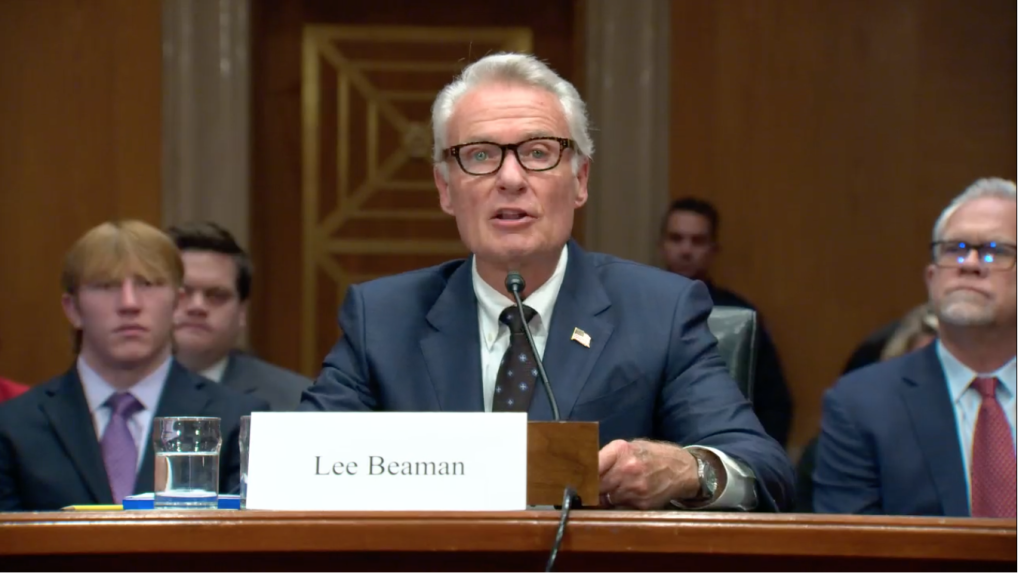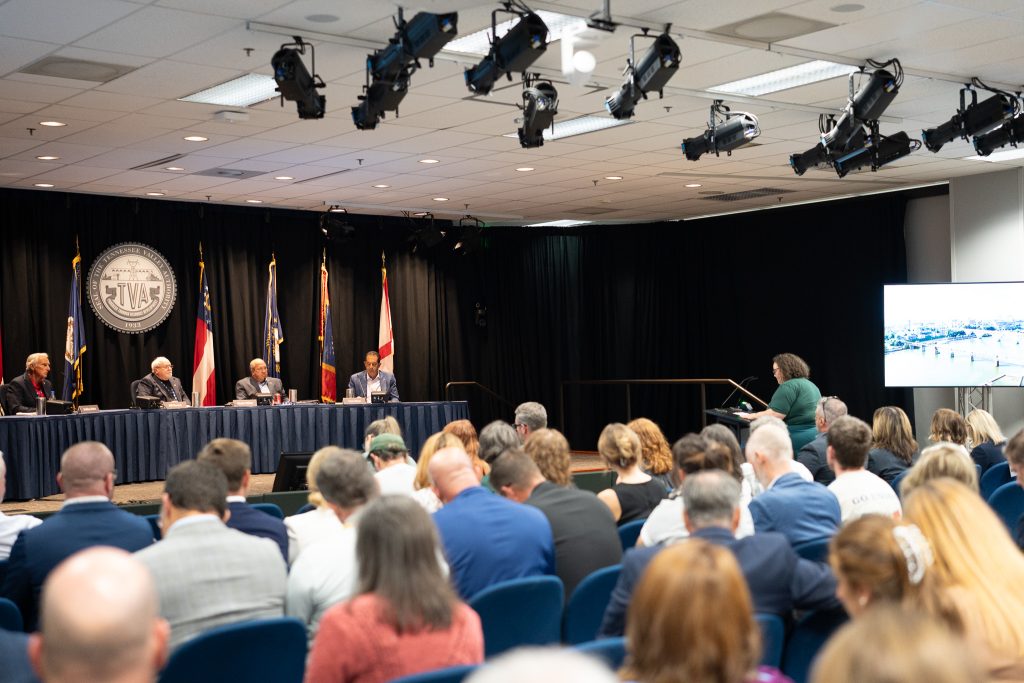From Appalachia To Africa, Big Tom Emerges A Survivor
Picture this: you have been se-lected to participate in the CBS reality television game show called “Survivor: Africa.” You and 15 other contestants will be forced to endure upwards of 39 days in the desert of the Shaba National Reserve in Kenya. You are allowed to take only two luxury items with you. What do you choose? A board game? A photo? A toothbrush and toothpaste?
For finalist Tom Buchanan of Rich Valley, Virginia, the unlikely choice was the penis of a raccoon. An old man who confidently predicted that good luck would befall any who carried it gave it to him. That claim cannot be scientifically disputed as Buchanan finished in 4th place and proved to be an audience favorite during the show’s run.
But there was something else Buchanan took with him that went unnoticed until he set foot on the sands of the Kenyan reserve; something that was over 40 years old and he had nurtured from his youth; something he acquired while working the family farm and roaming the mountain woods of southwestern Virginia. It‘s called common sense. By his own admission, Buchanan could not match intellect with the book-savvy band that he had joined, but mother wit would set him apart.
The first thing Buchanan’s tribe was charged with doing when the game began was finding their camp. Diane Ogden, a letter carrier from Lincoln, Nebraska, took command and beckoned the others to follow her. She carried an unopened map under her arm. Buchanan was not impressed.
“She may have thought she [knew which way to go], but she didn’t,” said Buchanan. “I whispered to one of them and said, ‘Here I am walking through Africa following a blonde’. I knew people back home would see me following a blonde and not looking at the map.”
Buchanan convinced Ogden to allow him and the others to see the map. On it he noticed a group of trees and equated them to a cluster of palm-like trees he saw in the distance. They would never be reached if they continued to follow the postal worker.
“She was trying and she said, ‘I think we need to go this way’. I told her that since we had a map, we needed to do more than think. We can’t be walking around lost out here in this heat.”
In the end, prudence prevailed and the group accompanied Buchanan. The camp was found precisely where the map showed it to be. Once camp was established, the tribe began to look for water. Food staples were desired as well, but finding water was critical.
“We had to work to get water. You can do without food, but you can’t do without water,” Buchanan said. “I was able to find water by looking for green. They kept saying, ‘How’d you do that?’ I knew that where there was green, there was water.”
At this point, it was becoming more and more apparent that the goat farmer from rural Virginia would be a valuable member of the Survivor team. Although not as culturally refined as some of the other castaways (Lex van den Berghe of Santa Cruz, California spoke three languages; Kelly Goldsmith of Rancho Santa Fe, CA was a behavior research analyst who graduated from Duke University), his skills as a woodsman would prove their worth throughout the course of the game.
Once found, the water had to be toted back to camp. A pole was inserted between the handle and the lid of the huge container that then sat at the pole’s midpoint. This allowed the weight to be evenly distributed across the shoulders of the carriers and helped make a tough task easier to perform. It was Big Tom who pitched the idea of using a pole.
When some of the members were having difficulty finding their way to the spring, it was suggested that they trek toward the tallest tree in the cluster and then proceed to the spring which would be located about fifty yards above the landmark. It was Big Tom who offered the navigational tip.
One day, upon reaching the stream where they routinely bathed, a fresh pile of elephant dung was discovered in its midst. Kim Johnson, a retired schoolteacher from Oyster Bay, New York, took a spot downstream from the excrement. A fellow tribesman advised her to wash upstream for obvious sanitary reasons. She ignored the advice. The kibitzer was none other than Big Tom.
“[Kim] kind of looked down her nose at me from the get-go,” recalled Buchanan. “I would act like I was going to get her spot, but she’d run over me to get there first. But I wasn’t going to wash there. I told her three different times that she needed to wash upstream. Since it was me telling her, she wouldn’t. She apparently knew more than I did. My daddy told me that if someone knew more than you did, to listen to them. I listened to her, but I never did wash where she did.”
Because rearing and habitat generally shape one’s life, it was difficult for those who lived in the city or upscale digs to relate to doing chores, pinpointing direction, and living in nature and on a sanctuary. For Buchanan, it came naturally and reminded him of his youth when everyday there was work to be done, with adventures to be explored afterward.
“We worked on the farm. When we weren’t working, we’d be hunting or fishing. We had to work before we could play.”
Such duties included hauling hay, working cattle, plowing, and raising tobacco, a laborious job. When Buchanan’s father, Raymond, was satisfied with his son’s effort, he would allow him to pursue the call of the wild.
“Duane Prater and I used to catch [snakes] and sell them. We’d put them in a pillowcase and sell them to a place at Lookout Mountain. We’d get five dollars each for the poisonous ones and one dollar each for the non-poisonous,” Buchanan fondly remembered. “We also hunted grouse, deer, bear, and raccoon.”
At 16 years of age and in the fashion of Daniel Boone himself, Buchanan killed a bear. He was hopeful that the experience would aid him if confronted by an animal of equal ferocity while in Africa. It didn’t.
“At night, we had to burn two fires to keep the animals out,” said Buchanan. “There was a few times I was scared. It wasn’t so much that I was afraid they were going to come into camp, but [rather] it was the realization that there was not an army of people out there to keep them out. When a lion is only 10 feet away from you and there’s only a barricade of thorns in between, that’s too close. I realized then that I was in the food chain.”
Amidst wild animals roaming the perimeter at night and enduring the scorching, hot sun during the day, life in the wasteland was challenging at best. Although Buchanan could relate more than the others to their draconian existence, he was not fully prepared for what lurked ahead.
“The land was harsh and there were thorns, brush, rocks, snakes and animals,” he said. “You’re hungry and wanting to eat something, but there was always something wanting to eat you. The sun was constantly putting pressure on you. It never rained, it was cold at night, and we never got more than three hours of sleep. We walked four or five miles each day, carrying water, pulling wood. Everything laid on you mind.”
He suffered along with those he was with. But unlike the others, he refused to wear sunscreen or sleep under mosquito netting. He reasoned that if the native people did neither, he wouldn’t either. Buchanan’s very nature is to defy the odds.
While playing football at 14 years of age, he dislocated four vertebrae in his back. The doctors said he would never walk again — he did. They said he would never play football again — he did. As a matter of fact, he played fours years at East Tennessee State University and was named team captain his senior season. For Buchanan, the Survivor experience only validated the farmer philosophy he adopted many years ago.
“Growing up on a farm I learned that life is good, but life is also harsh. I never questioned why God didn’t let the rains fall and the crops died. I accepted it as a harshness of life. That was my approach when I went to Africa — accept it as one of life’s harsh realities.”
Since returning from his ordeal in Africa, Buchanan has made life good for many people. He has appeared at numerous functions for charity, including benefits for AIDS and Special Olympics. He is often seen at autograph signings and treats all who come to see him as if they were his own.
He started a reading program called “Reading is the Key to Survival” at his area elementary school. It promotes reading at all levels and rewards participants with certificates and T-shirts. Yes, he took common sense with him across the Atlantic. But he also took a personality bigger than life and a heart as big as the continent that made him famous. We can all be glad that he brought them back.
(Author’s note: a line of Big Tom merchandise, including personally autographed T- shirts, can be found on his website at www.bigtomsurvivor3.com)
Related Articles
Latest News
More Stories

Leave a comment
Your email address will not be published. Required fields are marked *





Leave a Comment